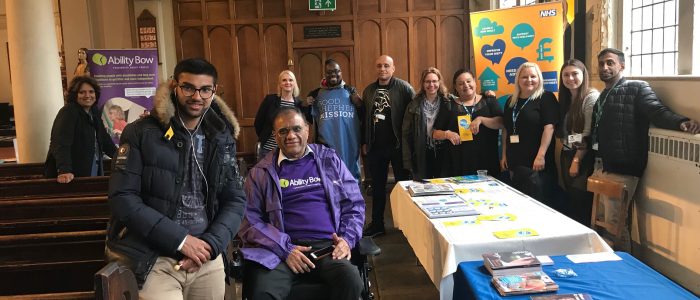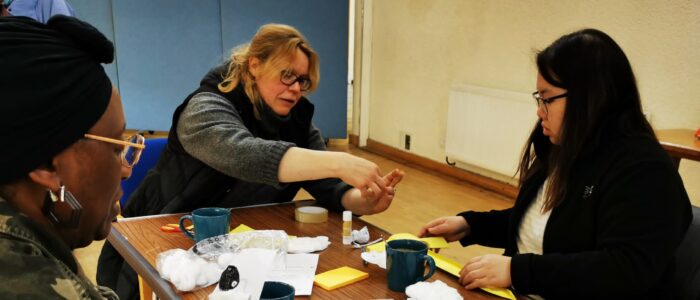Serving our local communities

The thing that all faiths have in common is the recognition of the need to reach out to the “widows and orphans” in our society: those who find themselves in a difficult position and who need some support to get back on their feet again.
Faith-based organisations are often incredibly well-placed to support those within their immediate sphere to find help. For example, we’ve all heard about the mental health crisis in our country. That’s why FaithAction member, Tower Hamlets Inter Faith Forum, gathered 15 local faith-based and voluntary sector organisations together during last week’s Men’s Health Week to raise awareness and offer support beyond that offered by the care services for those who need support with their mental health and wellbeing. It’s why the same organisation ensures that their bi-monthly forum meeting goes beyond talking and understanding, to convening events that are relevant to issues faced by their inner-city community, such as knife-crime or homelessness.
It’s also why FaithAction have been talking to our members the length and breadth of the country to find out how they are working with those who are lonely or isolated. It’s issues like these that are increasingly being recognised as those that must be tackled with urgency, if we are to live healthy lives, each with the ability to connect with others and make a contribution to our communities.
Misconceptions often arise that faith-based organisations are only open to people who share their faith. However, the reality is that they often provide activities for, or share their facilities with the whole community, just as Tower Hamlets Inter Faith Forum did from a local church building last week. From toddler groups to fitness classes, homeless shelters to employability programmes, community cafes to dementia-friendly groups the list of social action projects is as broad as the nature of the communities we serve.
Faith groups have been undertaking work that addresses these issues for many years – but is there anything they can do in order to be more effective? And is their work being recognised by the other agencies and services that are now focusing their efforts on tackling issues like these?
The challenge to faith-based organisations is firstly to recognise what they do, and secondly to evaluate the impact of their programmes. Only then will we individually and collectively be able to effectively prove the value of our worth thus enabling those other agencies and services to recognise our merits.


